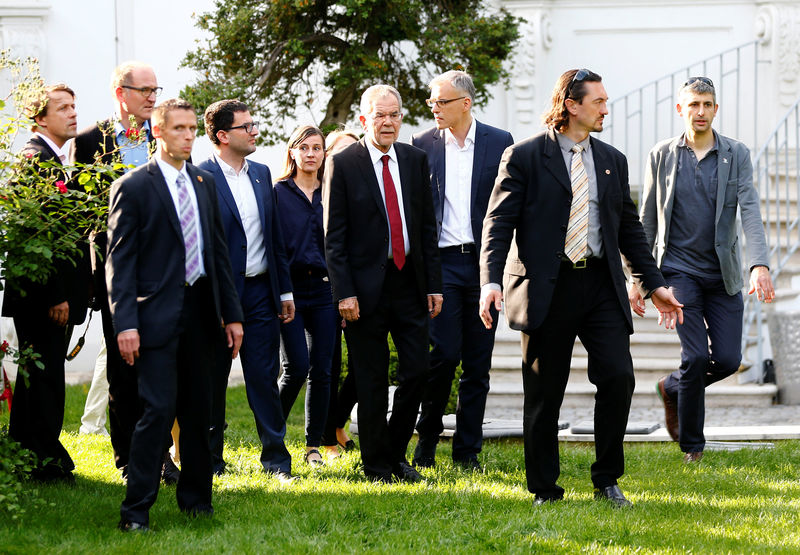VIENNA (Reuters) - A death threat by an apparent neo-Nazi on Twitter has prompted Austria's independent presidential candidate Alexander Van der Bellen to reinforce his personal security with members of the police special forces, a spokesman said on Wednesday.
Van der Bellen, a former leader of the Greens, narrowly beat Norbert Hofer of the far-right freedom Party in a May run-off election, only for the result to be overturned because of widespread irregularities in the count, though no foul play was uncovered. The re-run will be held on Dec. 4.
A screenshot of a tweet from Monday, which has since been deleted but was provided to Reuters by an official from the Greens, said, "I shoot Van der Bellen so he has holes like a golf court and dies".
The Twitter account has a profile picture showing a man with a shaved head and a swastika tattoo on his chest. The name of the account includes the number 88, a common reference among neo-Nazis to the "Heil Hitler" salute.
"The authorities are taking this very seriously. The domestic intelligence agency thinks the threat has increased," a spokesman for Van der Bellen said, adding that his personal protection was reinforced on Wednesday with members of the police's Cobra special forces unit.
A spokesman for the Interior Ministry declined to give details on Van der Bellen's personal security measures.
Austria saw a sharp increase last year in the number of incidents involving xenophobia, Islamophobia and anti-Semitism following the arrival of large numbers of mostly Muslim migrants and refugees.
Various Nazi symbols and slogans as well as denial of the Holocaust are outlawed in Austria, which was annexed by Nazi Germany in 1938 but largely without opposition, and became one of Hitler's close allies during World War Two.
The Greens official, who is from the southern province of Styria, said he had taken the Twitter message to the police to have its author investigated for issuing a death threat and for neo-Nazi activities.

The Twitter account on which the death threat was made also featured expressions of support for far-right political parties including Germany's NPD and Austria's Freedom Party, which is running first in opinion polls on more than 30 percent.